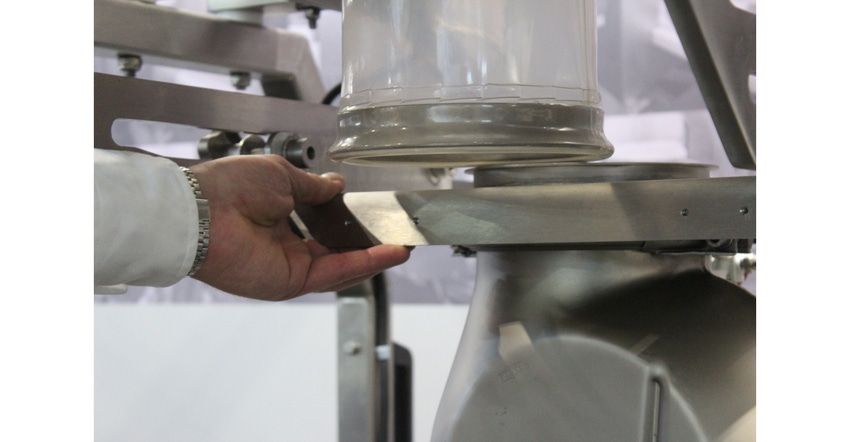Gravity Metal Detectors Add Tighter Food Security Layer
These gravity metal detectors are used on flour, rice, cereal, sugar, powder, and grain production lines.
May 27, 2022

A critical part of most food production processes, inspecting and removing metal contaminants in upstream free-falling dry product applications, Fortress Technology has added several recent enhancements to its robust stealth gravity metal detector. All enhancements were designed to advance productivity, enhance safety and maintain HACCP compliance in the busiest of food processing plants.
With productivity being such a critical measurement of output per hour, machine uptime on any fast-moving gravity inspection line is critical. Custom manufactured to accommodate different food factory layouts, including mezzanine floors, ceiling mounts, and between product chutes and hoppers, the stealth gravity metal detector is packed full of useful labor- and time-saving features. These include automatic testing to eliminate production downtime, as well as accurate, high-speed reject capabilities.
Offering detection of magnetic and non-magnetic metals, these gravity metal detectors are used on flour, rice, cereal, sugar, powder, and grain production lines.
“There is always value to be gained from adding upstream detection systems to most processes,” explained regional sales manager Eric Garr. “Upstream detection often makes it easier to detect contaminants, trace to their source, and potentially alert staff to equipment failures before they become catastrophic and potentially trigger huge recalls.
“Scanning raw materials as ingredients come into the factory is prudent for many reasons. Although in most instances these ingredients would be inspected by the supplier, a reinspection will help to doubly ensure that suppliers are complying and hold them accountable for ingredient quality. Of course, the most notable benefit is preventing metal from entering the production process in the first instance. Rejecting at the end of the line is typically the most expensive phase.”
For hazardous locations, such as flour factories or chemical plants where the application presents a combustible explosion risk, Fortress supplies clear ratings to meet the defined hazardous location standards. Always mindful of real factory conditions, the robust gravity metal detector is built to be sturdy and stable enough to withstand vibrations and temperature changes without compromising performance.
Available in a selection of food-grade anti-static in-feed pipe standard sizes, including 75, 150, and 200 mm, gravity metal detectors apply powerful digital signal processing technology to identify the smallest of metal fragments. Operatives are instantly alerted to any detection by an audible and visual alarm. A reject confirmation alert verifies that the reject device has operated correctly during every reject.
Fortress Technology Inc., Toronto, ON, Canada 416-754-2898 www.fortresstechnology.com
About the Author(s)
You May Also Like




